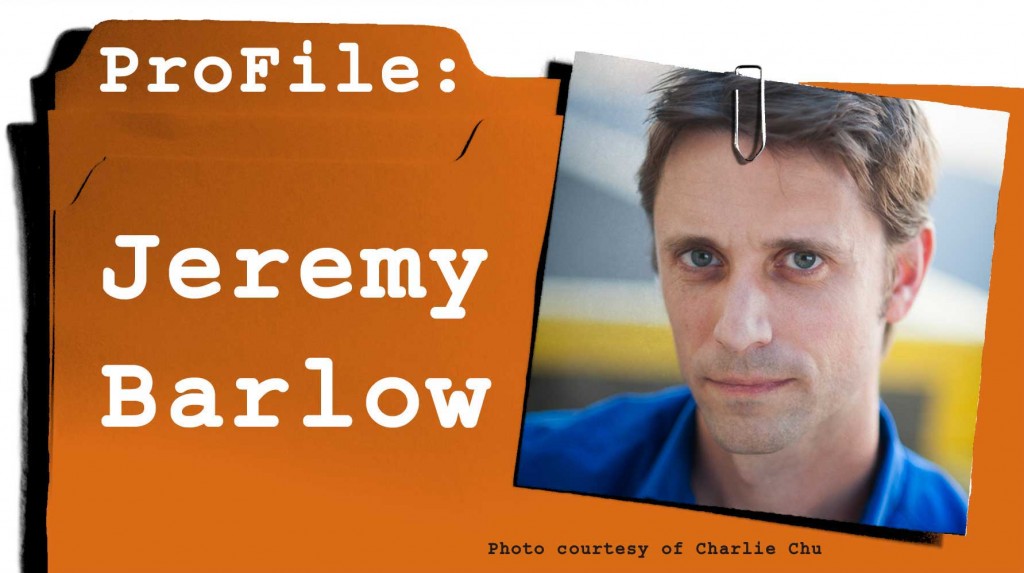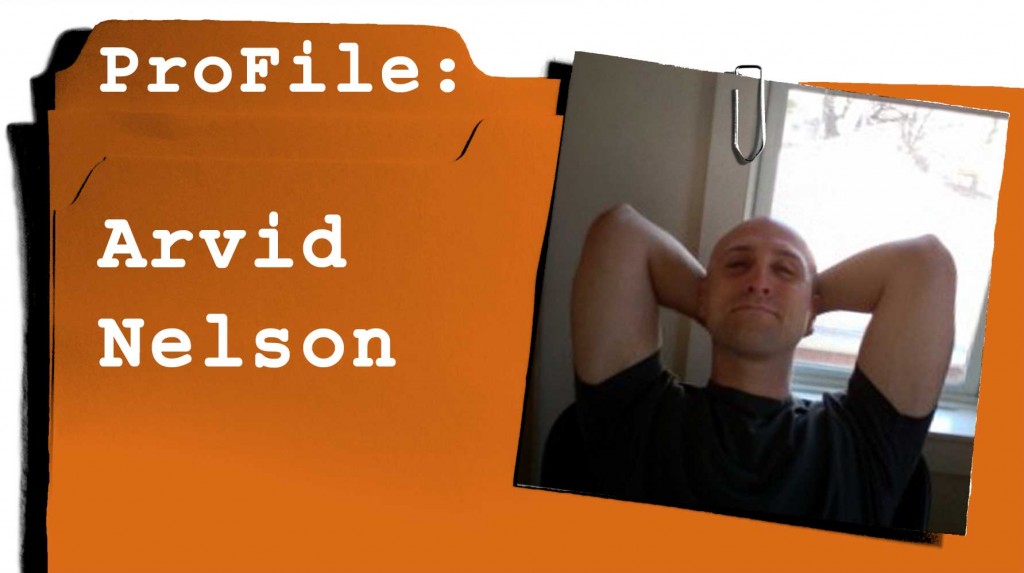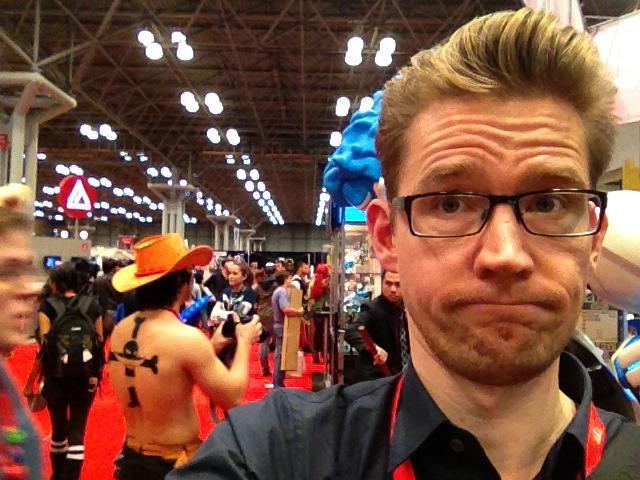In this episode I share some tips and suggestions for becoming a better artist. Drawing every day and everywhere is one thing, but what if you find yourself hating the end result? How do you get good at drawing and make it a habit? Well, click play and find out!
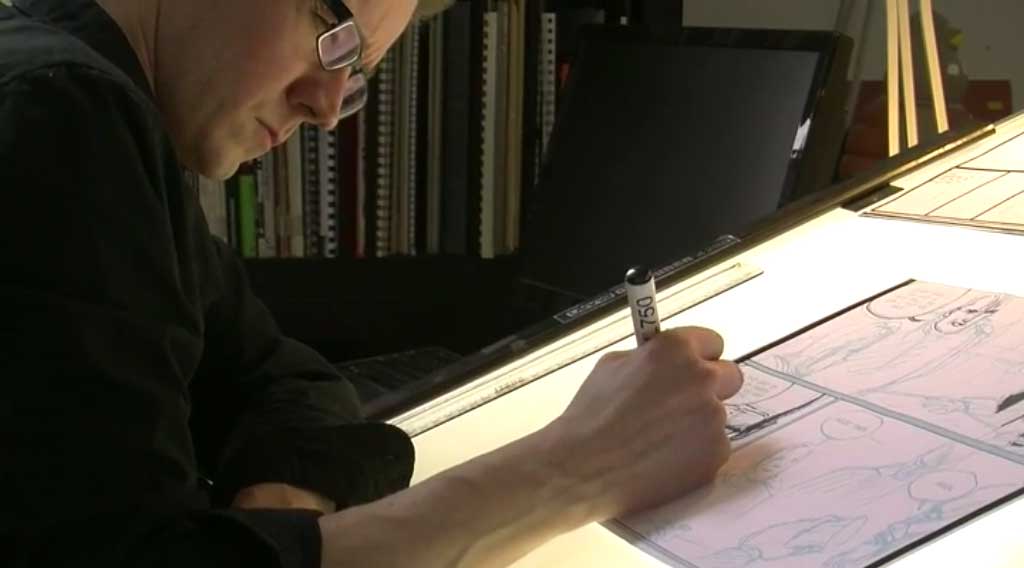
critique
ProFile: Jeremy Barlow
Jeremy Barlow is an Eisner Award nominated writer and editor whose graphic novel credits include Mass Effect Foundation,Dethklok: Metalocalypse, and R.I.P.D. City of the Damned. He lives in Portland OR, and is a member of famed Periscope Studio.
What made you decide to work in the medium of comics?
Comics have always been my first love. I grew up reading whatever comics I could get my hands on, and that passion has carried through my life. There’s something about the way comics work on your brain that’s totally unique; how the visuals and the text interweave, how your mind creates motion and context in the juxtaposition of static images — it’s like a magic trick. A great graphic novel can punch you right in the heart.
What part of the process is the most challenging or frustrating to you?
The stupid, unjustified self-doubt. Despite all I’ve accomplished, I still approach every new project feeling like I have no idea what I’m doing, that I’ve forgotten how to write a script, that I’m gonna blow it and it’ll be the last job I ever get. Typical impostor syndrome. I know it’s not true, and I always push through it to get the work done, but, man — it wastes a lot of time.
Beyond that, my professional life would be so much easier if I could draw my own stories. Working in a visual medium without a visual skill set is a little bit crazy. I have stories I’m burning to tell — and I can see how great the graphic novels would be if they existed — but without an artistic partner to help me execute them, they’re just folders on my hard drive.
It’s just a fact of being a writer in this medium, and I’m not alone in it, I know. It’s all worth it when you do finally establish a collaboration and put it all together. It’s totally worth it.
If you could give one piece of advice to an aspiring comics creator, what would that be?
Give yourself permission to be terrible. For a while. Getting good at anything takes time — you have to put in the hours and get the crap out of your system, because we’re all terrible when we start out. I know when you’re starting out the drive is to make it a career as soon as possible, but you’re better off in the long run to spend the time developing your voice and your point of view. And the only way to do that is to do a lot of crappy work and to learn from your mistakes. God knows I’m still learning.
It’s okay for your first drafts to be awful. They should be! No one’s going to see it, so stink it up! Because no one gets it right the first time, and the real magic happens when you’re editing or revising your work, so just get it out. You can’t fix something if it doesn’t exist.
However, don’t lean on that on an excuse not to up your game. It’s okay to start terrible, but don’t stay there!
website: jeremybarlow.com
Twitter: @Jeremy_Barlow
ProFile: Arvid Nelson
Arvid Nelson lives in Western Massachusetts with his loving wife, an angelic son, and a large television. He’s written for all the major publishers, he believes in the Oxford Comma, and his biggest claim to fame is Rex Mundi. Follow him at arvidland.com.
What made you decide to work in the medium of comics?
I worked on a couple of movies after college, and I quickly discovered film wasn’t for me. Movies involve a lot of logistics and fund-raising. The artistic process inevitably gets garbled. Comics seemed like a great “shortcut”, a great way to tell a big-budget story for practically no money. So I guess it was a cynical, calculated decision in some ways – I mean, I can’t say I have a burning passion for comics – but at the same time, it was in pursuit of telling the best stories I could, without making compromises.
What part of the process is the most challenging or frustrating to you?
Depending on other people! For instance, a key team member on one of my stories fell ill and stopped producing for a year. A year, Palle! He’s okay now, and that’s by far the most important thing, but it really hurt our momentum. Imagine waiting for a year in between episodes of The Wire or whatever. It breaks your heart.
If you could give one piece of advice to an aspiring comics creator, what would that be?
Well, two things, and they’re related – persistence and forgiveness. By “forgiveness” I mean “forgive yourself for failure”. The more you forgive yourself, the more you’ll improve. And that leads to the other thing – persistence. You will pour your heart into a comic and then let it loose on the world with hope bubbling in your soul… only to be completely ignored. That’s okay. It happens to everyone, or, at least, I hope so, or I’m a total jerk. But if at first you don’t succeed, fail, fail again. Failure never gets any easier, but if you keep at it for a few years and then look back at where you started… you’ll say to yourself “Wow, I have really come a long way”.
Tom Lyle and his Inner Voice – Comics for Beginners podcast episode 11
We’re often told to listen to the voice inside ourselves. But what if that voice is preventing you from working on the thing you love most? This morning I went back to the New York Comic Con to talk to Tom Lyle (tomlyle.blogspot.com), comics artist known for his work on Spiderman and Batman & Robin and teacher at the Savannah College of Art & Design (https://www.scad.edu/). And I was surprised and encouraged by the fact that this 28-year comics veteran also hears voices. So it’s not just me!
Give it a listen and leave comments below.
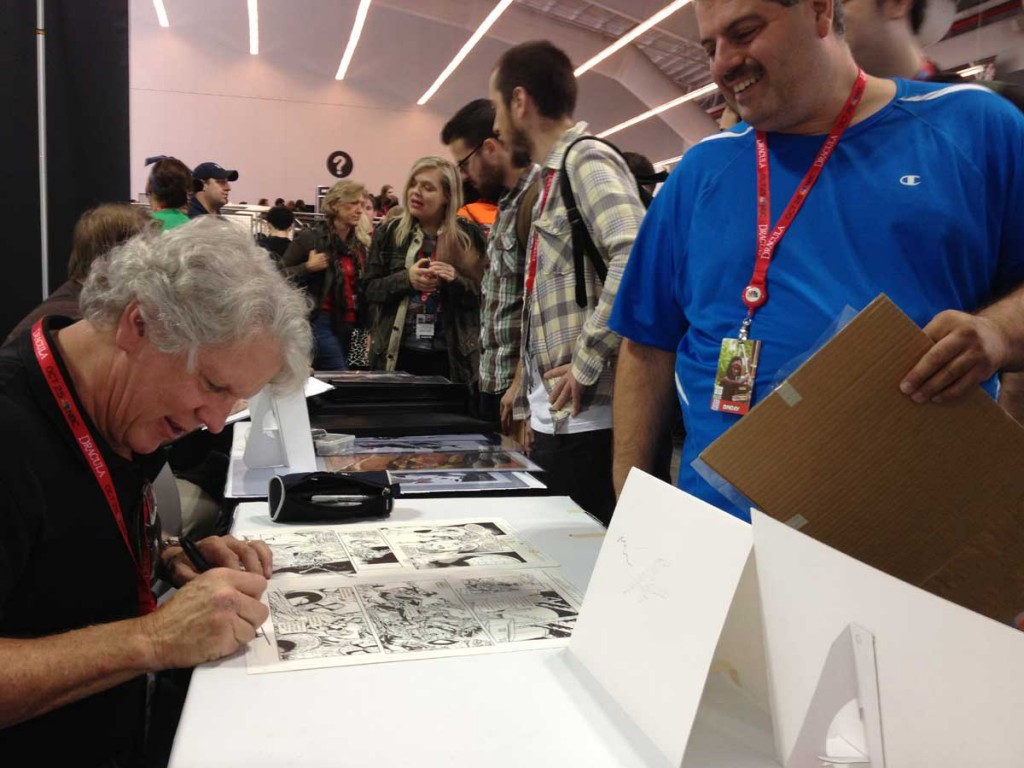
Breaking In at the New York Comic Con – Comics for Beginners podcast episode 9
At cons like NYCC you hear a lot of chatter about “breaking in” to comics. In this episode we get three different perspectives on the subject: from writer Kurtis Wiebe (http://kurtiswiebe.wordpress.com/), artist Rick Parker (http://rickparkercartoons.blogspot.com/) and colorist Jose Villarrubia (http://www.mica.edu/About_MICA/People/Faculty/Faculty_List_by_Last_Name/Jose_A_Villarrubia.html). Some great tips and valuable insights in this one!
Get Critizised, Get Better
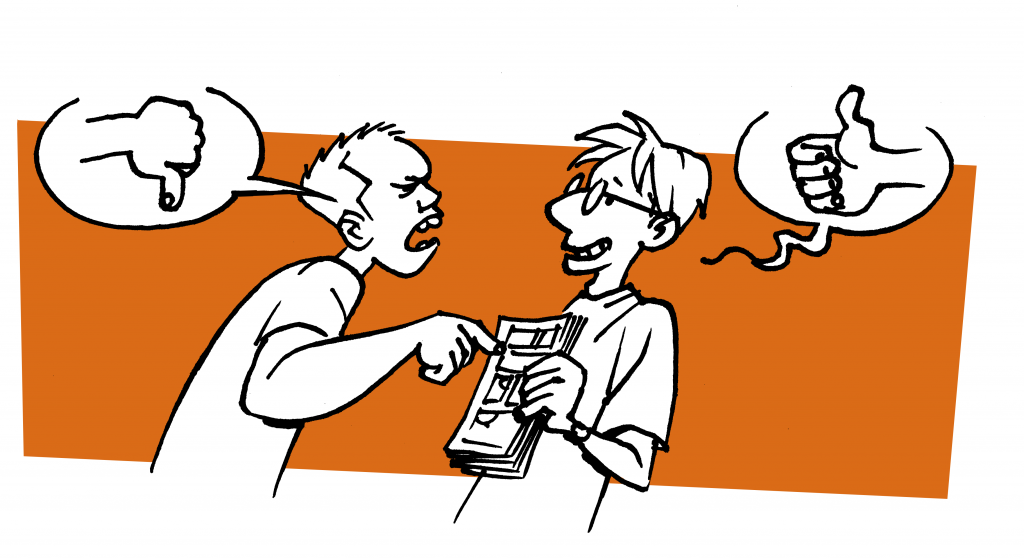 How do you get better at making comics? Well, hard work and pratice, obviously. But getting feedback can be crucial to understanding how your work impacts other people. And that’s what it is all about!
How do you get better at making comics? Well, hard work and pratice, obviously. But getting feedback can be crucial to understanding how your work impacts other people. And that’s what it is all about!
Getting the right readers is not easy. You reach out to the person closest to you, you end up getting criticism from you Mom or your girlfriend. Not always a great idea! You need someone you can trust to give their honest opinion. And someone who will not completely destroy your ambitions and self confidence in the process.
Set some ground rules before you have someone read your script or look at sketches. Be specific in what kind of feedback you are looking for. Have them ask questions like “What are you trying to achieve in this panel?” rather than tell you what they like and don’t like. You want their opinion, sure, but you must have some sort of idea what it is YOU want to do. It’s YOUR story, not theirs!
When you ask someone to look at your work and give feedback, be aware that you are asking them to spend their time trying to help you. So the most important thing during their feedback is to listen. You don’t have to agree with everything, but have the courtesy to take notes and ask questions, resisting the urge to defend or explain.
Lastly, you need to understand that whatever feedback you get, is not an assault on you. You are not your story. Don’t take it personally. And getting feedback from the people closest to you, is a surefire way of making it personal. Ask a stranger on the bus before asking your Mom! Ask several different people for feedback, knowing you will get several different answers! People are not confirmation machines. They will tell you stuff you don’t like, some of it helpful, some of it not.
Listen, take notes, think about what they said. And then get back to work.
And remember: you’re the boss.
Related video: Episode 2: How to write your own comic
